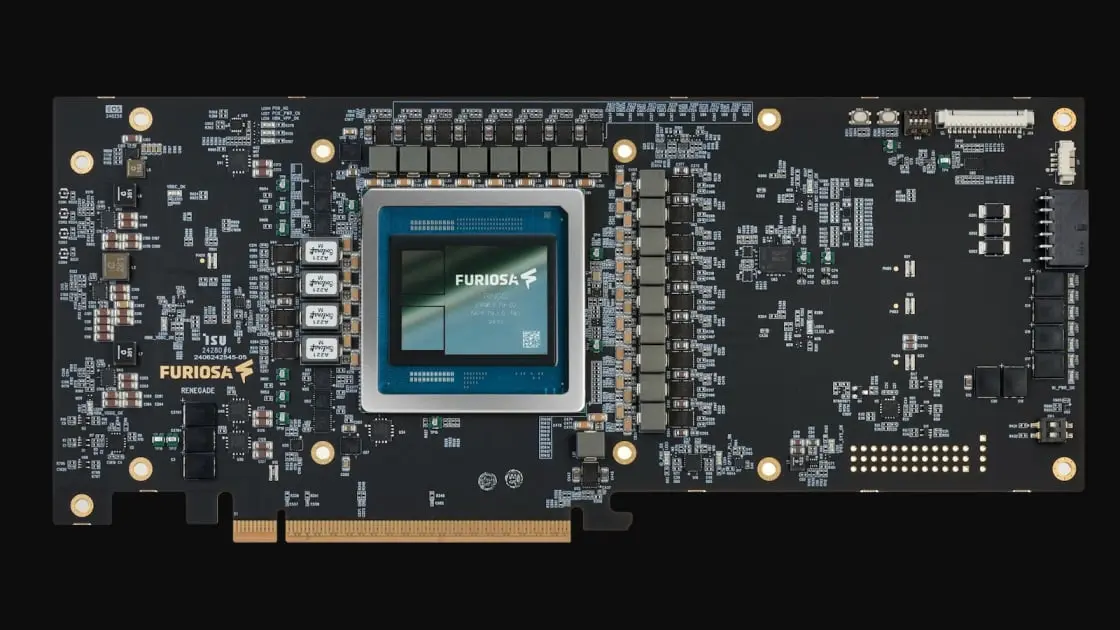Untether AI Launches Efficient AI Chip for Edge Computing and Inference
2 Sources
2 Sources
[1]
Startup Untether launches AI chips
SAN FRANCISCO (Reuters) - Startup Untether launched an artificial intelligence chip on Monday that aims to power AI applications in cars, agricultural devices and other edge-case scenarios, the company said. The flagship AI chips made by Nvidia and Advanced Micro Devices are designed to run inside of data centers tied together with thousands or tens of thousands of others. Such installations require large amounts of energy and additional equipment and are often geared toward building, or training, large language models that power applications like ChatGPT. Toronto-based Untether said its chips are designed to run the AI applications once a model is already built and can do so at a greater level of efficiency. The market for chips that only run AI applications, also called "inference," will dwarf the market for training by 2027, Untether's vice president of product, Bob Beachler, told Reuters in an interview. The company expects the inference market to grow to $102 billion by 2027. "Where that inference is going to be deployed is everywhere," Beachler said. Untether's chip, called the 240 Slim, offers substantial performance but with significantly less energy, and is suited for use inside autonomous vehicles, autonomous agricultural equipment and in some data centers. Mercedes-Benz has said it is working with Untether on its next-generation autonomous vehicles. The chips made by Untether were developed around the open-source RISC-V tech. RISC-V technology competes with designs made by Arm Holdings. In a recent peer-reviewed benchmark from nonprofit MLCommons, Untether's chips performed well in tests for the applications the hardware is designed for. (Reporting by Max A. Cherney in San Francisco; Editing by Leslie Adler)
[2]
Startup Untether launches AI chips
SAN FRANCISCO, Oct 28 (Reuters) - Startup Untether launched an artificial intelligence chip on Monday that aims to power AI applications in cars, agricultural devices and other edge-case scenarios, the company said. The flagship AI chips made by Nvidia (NVDA.O), opens new tab and Advanced Micro Devices (AMD.O), opens new tab are designed to run inside of data centers tied together with thousands or tens of thousands of others. Such installations require large amounts of energy and additional equipment and are often geared toward building, or training, large language models that power applications like ChatGPT. Advertisement · Scroll to continue Toronto-based Untether said its chips are designed to run the AI applications once a model is already built and can do so at a greater level of efficiency. The market for chips that only run AI applications, also called "inference," will dwarf the market for training by 2027, Untether's vice president of product, Bob Beachler, told Reuters in an interview. The company expects the inference market to grow to $102 billion by 2027. Advertisement · Scroll to continue "Where that inference is going to be deployed is everywhere," Beachler said. Untether's chip, called the 240 Slim, offers substantial performance but with significantly less energy, and is suited for use inside autonomous vehicles, autonomous agricultural equipment and in some data centers. Mercedes-Benz (MBGn.DE), opens new tab has said it is working with Untether on its next-generation autonomous vehicles. The chips made by Untether were developed around the open-source RISC-V tech. RISC-V technology competes with designs made by Arm Holdings (O9Ty.F), opens new tab. In a recent peer-reviewed benchmark from nonprofit MLCommons, Untether's chips performed well in tests for the applications the hardware is designed for. Reporting by Max A. Cherney in San Francisco; Editing by Leslie Adler Our Standards: The Thomson Reuters Trust Principles., opens new tab
Share
Share
Copy Link
Startup Untether has introduced a new AI chip designed for edge computing and inference tasks, aiming to revolutionize AI applications in various sectors including automotive and agriculture.

Untether AI Introduces New Chip for Edge Computing
Toronto-based startup Untether AI has launched a new artificial intelligence chip aimed at powering AI applications in various edge-case scenarios, including cars and agricultural devices. The chip, named 240 Slim, is designed to run AI applications efficiently once a model has been built, offering a different approach from the flagship AI chips produced by industry giants like Nvidia and AMD
1
2
.Distinguishing Features of the 240 Slim
Unlike the chips designed by Nvidia and AMD, which are primarily used in data centers for training large language models, Untether's 240 Slim is optimized for inference tasks. These tasks involve running AI applications after the model has been trained, which can be done with greater efficiency and less energy consumption
1
2
.Bob Beachler, Untether's vice president of product, emphasized the chip's energy efficiency and performance capabilities:
"Where that inference is going to be deployed is everywhere," Beachler stated, highlighting the chip's potential for widespread application
1
2
.Market Potential and Applications
Untether is betting on the growing market for inference chips. The company projects that the inference market will reach $102 billion by 2027, potentially surpassing the market for training chips
1
2
.The 240 Slim is particularly suited for use in:
- Autonomous vehicles
- Autonomous agricultural equipment
- Certain data center applications
Notably, Mercedes-Benz has announced its collaboration with Untether for its next-generation autonomous vehicles, indicating the chip's potential in the automotive industry
1
2
.Related Stories
Technical Specifications and Performance
The 240 Slim chip was developed using open-source RISC-V technology, which competes with designs made by Arm Holdings. This choice of architecture may offer advantages in terms of customization and licensing
1
2
.In recent peer-reviewed benchmarks conducted by the nonprofit organization MLCommons, Untether's chips demonstrated strong performance in tests designed for their intended applications
1
2
.Implications for the AI Chip Market
The introduction of Untether's 240 Slim chip represents a significant development in the AI chip market. As the demand for edge computing and efficient AI inference grows, specialized chips like the 240 Slim could play a crucial role in enabling AI applications across various industries.
This launch also highlights the diversification of the AI chip market, with startups like Untether challenging established players by focusing on specific use cases and efficiency improvements. As the AI industry continues to evolve, the competition between different chip architectures and designs is likely to intensify, potentially driving further innovation in the field.
References
Summarized by
Navi
[1]
[2]
Related Stories
Nvidia Rivals Target AI Inference Chip Market to Challenge GPU Dominance
20 Nov 2024•Technology

OpenAI Develops First In-House AI Chip in Collaboration with Broadcom and TSMC
30 Oct 2024•Technology

FuriosaAI launches RNGD chip in mass production to challenge Nvidia's AI inference dominance
06 Jan 2026•Technology

Recent Highlights
1
ByteDance's Seedance 2.0 AI video generator triggers copyright infringement battle with Hollywood
Policy and Regulation

2
Demis Hassabis predicts AGI in 5-8 years, sees new golden era transforming medicine and science
Technology

3
Nvidia and Meta forge massive chip deal as computing power demands reshape AI infrastructure
Technology





